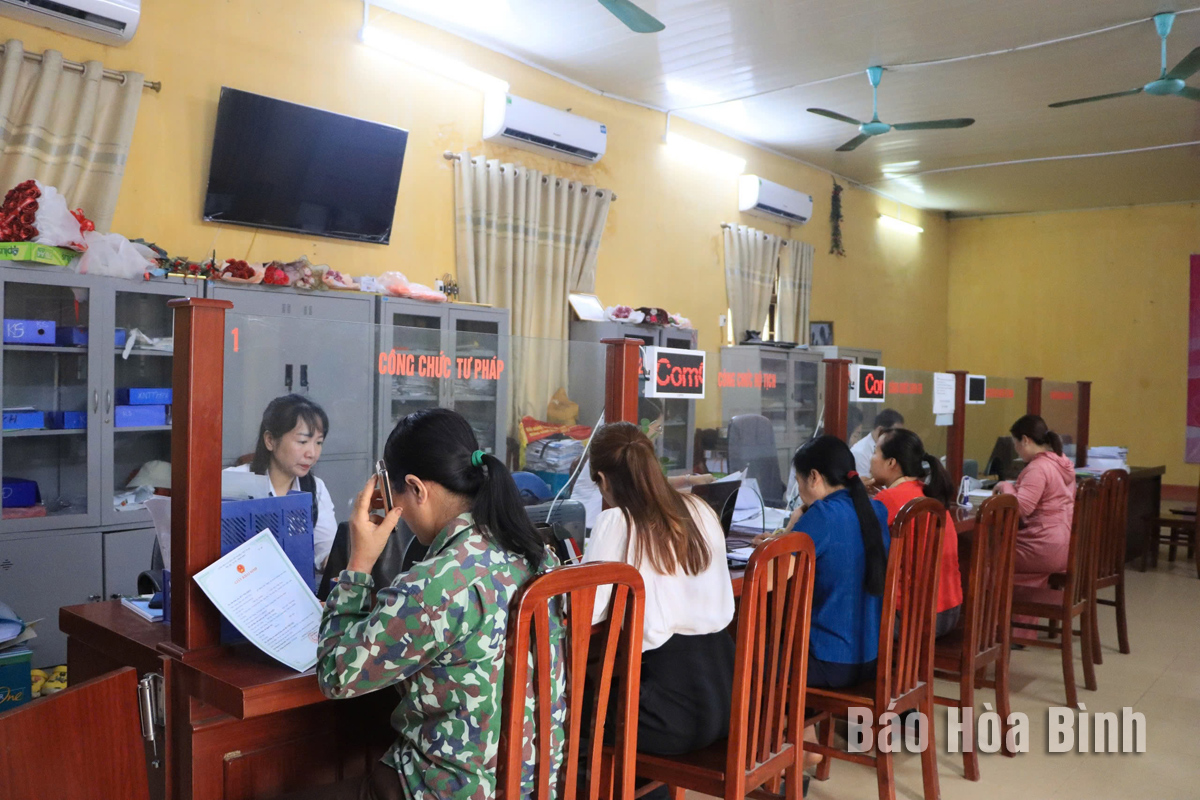



Administrative procedure reception and return desk in Thanh Son commune, Luong Son district.
The district has paid attention to developing digital infrastructure, digital data; applying information technology (IT) in the political system’s activities; and developing human resources for sci-tech development, innovation, and digital transformation.
Luong Son has also streamlined the system of state administrative agencies from the district to the grassroots levels, ensuring effective and efficient operations, with clearly defined functions and responsibilities of district-level agencies and the local People's Committees; building a force of officials and civil servants with adequate political qualities, professional expertise, and high responsibility.
The district has kept reducing time in handling administrative procedures, and promoting online administrative procedures to enhance transparency, save costs, and create favourable conditions for residents and businesses.
It has been actively upgrading and perfecting IT infrastructure to ensure proper support for the IT application in state offices. The district established an online meeting system for district-level and commune-level People's Committees. Currently, there are 13 online meeting points across the district. The district upgraded its data centre to ensure the storage and processing of large data for AI applications.
It is speeding up the digitisation of data to ensure synchronisation with the implementation of information systems and specialised databases; digitising the results of administrative procedures and electronic archive as required. The district is also building a smart operation monitoring center model to enhance public management, improve governance efficiency, and operational effectiveness at all levels; deploying e-administration; and conducting comprehensive online monitoring to promptly warn and detect early signs of corruption, wastefulness, and negative phenomena.
The one-stop shops at the district People’s Committees and communes across the district are proved effective in serving citizens and businesses, enhancing the effectiveness of leadership and management by local authorities.
In 2025, the district People’s Committee is planning to pilot the application of AI to support the administrative procedure handling at the administrative procedure reception and return desk.
It will also implement synchronised measures to enhance STEM education and career guidance, encouraging students to study STEM fields; develop and implement policies for nurturing STEM talents; and have policies and training programmes for State employees to apply new and high technologies.
Nguyen Anh Duc, Vice Chairman of the Luong Son district People’s Committee, said the district is focusing on implementingthe Politburo's Resolution No.57 issued in December 2024 on breakthroughs in sci-tech development, innovation, and national digital transformation.
Accordingly, it established a digital transformation steering committee responsible for consulting the local authorities on the direction and management of the digital transformation tasks.